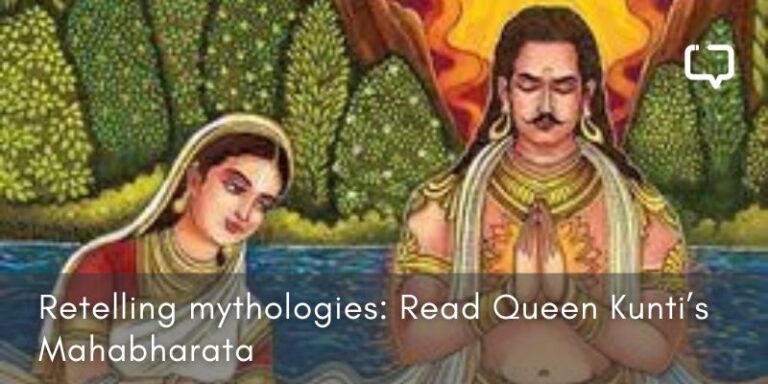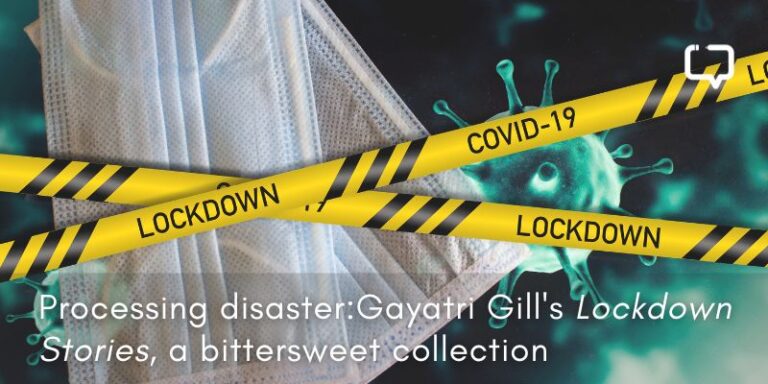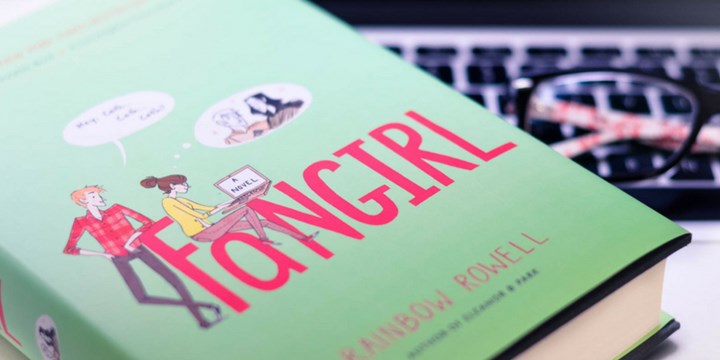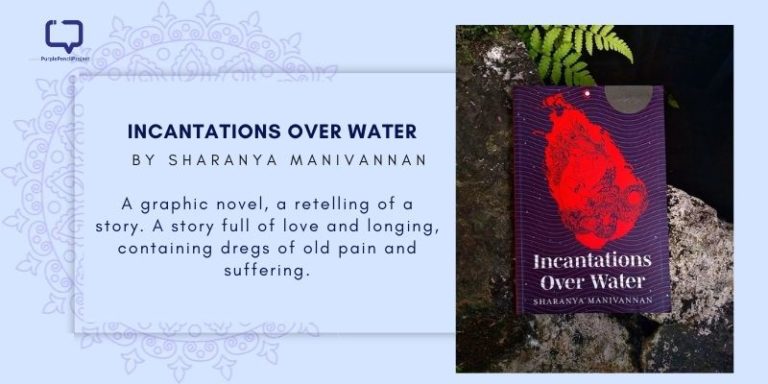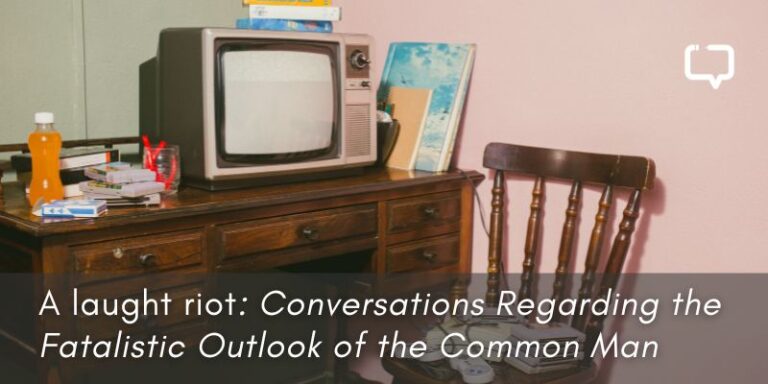Rahul Vishnoi reviews Chetna Maroo’s Western Lane (Published by Picador, 2023)
Western Lane, Chetna Maroo’s Booker-shortlisted debut, is a short novel, almost a novella, sketching a grief-soaked picture of a Gujarati immigrant family residing in the UK. Narrated by the youngest of three girls Gopi, ‘Western Lane’ spans only a few months in the lives of Mona, Khushi, Gopi, and their father, referred to as Pa. The sisters, already introduced to the game of Squash in their childhood, are now re-introduced to it as a way to exorcise their grief.
Their father, an electrician, probably presumes if the girls are physically exhausted, they won’t be mentally drained. Gopi excels at Squash and her life begins to thread into the events and people she meets on court. Western Lane is the eponymous squash court that lends its name to the book.
S Hareesh, in his 2020 JCB-winning novel ‘Moustache’ (superbly translated by Jayasri Kalathil) mentions how a boatman can be hard-pressed to find the beginning and the end of the sky and water if he ventures on water at night. The sky can feel like the river and the other way round. In Western Lane, the reader is a dinghy stranded on a sea of grief.
The sadness is deep and quiet but overrun with icebergs of chilling patriarchy that jar you back into reality, like an unexpected stone hiding in mouthfuls of food. Hiding this everyday misogyny in her narrative, Chetna Maroo has reminded us we all are boats bobbing in a sea of patriarchy.
We encourage you to buy books from a local bookstore. If that is not possible, please use the links on the page and support us. Thank you.
Chetna Maroo’s Storytelling and Writing
The author sows the seeds of high drama in the beginning but refuses to reap the emotions. The three sisters and Pa visit Edinburgh to Aunt Ranjan and Pavan Uncle’s home for a ceremonial meal to end the mourning period. Mona, the elder sister blames the aunt for forcing their father to impose the gruelling training session on them. Chetna writes- ‘Mona said that all of it, the sprints and the ghosting and the three-hour drills, started when our aunt Ranjan told Pa that what we girls needed was exercise and discipline and Pa sat quiet and let her tell him what to do.’
Aunt Ranjan is instrumental in the story. She is a catalyst, changing everything and yet remains unchanged at the end. She namedrops the girls’ dead mother and uses her to drive the lives of her nieces. She warns her brother-in-law that ‘it is not too late for your girls,’ she claims she had told the same thing to Charu (the dead mother), but she isn’t blaming her now. According to one of the sisters, Aunt Ranjan is afraid of them because she doesn’t know how to find out what they are thinking.
The first chapter floats in waves of high drama. The aunt is staring at the girls who are either scrubbing potatoes vigorously or banging cooking utensils on the kitchen counter. Aunt Ranjan is relentless.
She calls the girls ‘wild’, scolds Khushi for wearing her hair loose in the kitchen, and blocks Gopi’s view of the Gulab Jamun bowl. The same Aunt Ranjan asks her brother-in-law to hand over one of his daughters because as a single parent, he would have problems taking care of three teenage girls.

The Characters
Pa is one of the most interesting characters here. He is called ‘a man who was eaten by rats’ by one of his daughters. On one occasion, he reminds his daughter that Indians and Pakistanis are brothers. On meeting a Pakistani in Western Lane though, he makes sure to tell him he is a ‘Jain’. After his wife dies, he takes one of his daughters to visit their relatives. ‘You had to keep in touch with people,’ he claims, but his daughters could make out his heart wasn’t in this. Chetna has used him to push unsaid emotions.
Although he is an electrician, the radiators in their home are in poor condition, leading to a cold house. Gopi believes that in the past, Pa would have solved the problem right away, but now he ignores it. He misses work appointments and a character tells the girls he looked lost on the job and left without having the tea offered to him. Burdened with raising three girls, he confides in a woman about them at Western Lane- ‘Sometimes I look at them and I think they will eat me.’
Chetna Maroo has not let any chance to hit at the way the world belittles girls and women. Aunt Ranjan is a flagbearer of misogyny. She calls Gopi, the protagonist ‘wild’ for eyeing a bowl of gulab jamun. Inside the Squash court, another character tells Gopi ─ ‘You are as tough as a boy.’
In Western Lane, the passing of a mother is a foundation upon which the casual voyeurism of the society is built word by word. Gopi says ─ ‘What visitors we had were very interested in what we ate every day.’ Gopi mentions that after Ma died, the sisters were always very careful to go anywhere with their hair washed, nails cut, and clothes cleaned.
Recommended Reads: On art exhibitions, food writing and everything in between: Tanya Abraham
The death of someone as fundamental in a child’s life as a mother and the profound grief it brings along is captured in multiple ways. Gopi wonders if her mother comes back, she’d find out that things were too solid for her and her daughters’ bodies too hard. She wondered if her touch would bruise her mother.
‘Would our talk hurt her ears? When we moved we seemed to fly past her, causing her to fall back. Would we seem different to her in ways so small she could never mention them for fear of our denials?’
Western Lane by Chetna Maroo
Mona, the firstborn, developed a placid expression and committed herself to a new relationship with her father. She began to manage everything in the house, but she sought Pa’s opinion on things.
The Language
Language also is a road that travels to grief. One of the sisters starts speaking in Gujarati, which they rarely did when the mother was alive. Khushi would get out of bed at night and sit on the stairs. When her sisters ask what she’s doing up at night, she tells them she’s talking to Ma. While the sisters think about going outside their room and bringing her back, they don’t as if they themselves are convinced that she is talking to their mother.
Gopi says ─ ‘We had always spoken to Pa and our aunts and uncles in English but never to Ma, because, though she understood English, it was hard for her. And our Gujarati wasn’t enough. That was why we had always listened to Ma very closely and watched her. Maybe it was why we pulled at her, pushed into her, made ourselves physical in her presence.’
Mona, who according to her sisters liked a Pakistani boy, didn’t do anything about it. Gopi thought that Mona couldn’t bear the thought of Aunt Ranjan calling Pa to complain that his daughter was going around with a Pakistani boy. ‘What about the shame on Ma, who was gone? While Ma was alive, whenever we did something we weren’t supposed to, our relatives would bring Ma’s feelings into it, as if she was easy to hurt. Now she was gone, our capacity to hurt her seemed infinite.’
The death also brings out jealousy in the sisters who are wary of Ged’s mother—a boy who plays squash with Gopi—who often shares a smoke with the sisters’ father. Jinal, a girl in the sisters’ class, wants to invite them to her home but the girls, knowing that her father had passed away, consistently refuse to visit. ‘We were all thinking about Jinal’s mother. We were imagining Pa standing against the wall, watching us train, and Jinal’s mother emerging from the sports centre in her good sari to stand next to him, with two cups of tea.’
Apart from using grief as a trampoline to bring out a myriad of emotions, Chetna Maroo’s use of double spacing between words to show the stammer of a character is smart work.
Conclusion
Broadly, Western Lane by Chetna Maroo works as a concept, but the execution is stunted in drama and emotions. There is a lot being said between the lines, but three teenagers in a mother-bereft home with a father teetering on the edge of absolute exhaustion demands more amperage than Chetna allows in her storytelling.
It appears as if she has tied a string to her pen, pulling it away every time there is a slight chance of cranking up the emotions lest a little drama seeps in. This makes the book bland. The only conflict staged by the author comes too late in the book and that’s saying something as it’s just 170 pages long, typed and bound on a short paper.
Have you read this gripping tale of survival and sisterhood? What do you think of it? Drop a comment below and let us know!













